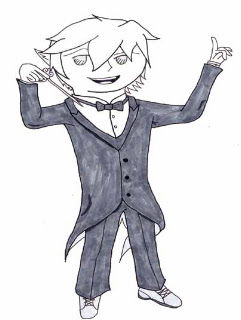The
Legend of Zelda is one of video gaming’s oldest, most famous, and most prestigious
series. Its sense of exploration and adventure, epic storylines, and majestic musical
scores ensure it a place in many gamers’ hearts.
 Shigeru
Miyamoto, known as the Spielberg of video games due to his monumental influence
on the form, created the Zelda series as an homage to the days of his childhood
when he would explore the vast caves and fields of his hometown, bringing with
him only the imagination of a child and a sense of adventure. The game itself
was technically innovative, in many ways, especially in that other games of its
time were single-screen affairs, while Zelda scrolled in any direction with a
top-down viewpoint. This allowed Miyamoto to design enormous worlds resembling
the ones that he explored as a child. The game was so vast that Nintendo feared
gamers would get lost, seeing it fit to pack a map in with retail copies of the
game.
Shigeru
Miyamoto, known as the Spielberg of video games due to his monumental influence
on the form, created the Zelda series as an homage to the days of his childhood
when he would explore the vast caves and fields of his hometown, bringing with
him only the imagination of a child and a sense of adventure. The game itself
was technically innovative, in many ways, especially in that other games of its
time were single-screen affairs, while Zelda scrolled in any direction with a
top-down viewpoint. This allowed Miyamoto to design enormous worlds resembling
the ones that he explored as a child. The game was so vast that Nintendo feared
gamers would get lost, seeing it fit to pack a map in with retail copies of the
game.
The
game’s pedigree is such now that it has spawned a concert tour called The
Legend of Zelda: Symphony of the Goddesses to feature its much-beloved musical
scores. The concert is organized by several lifelong Zelda fans, including producer
Jerod Moore, Jason Michael Paul, and musical director Chad Seiter.
Paul,
who used to be a production manager with Luciano Pavarotti, might be considered
a pioneer in the area of video game concerts. The genesis of the Zelda project
was out of previous musical projects: “I’ve done video game music concerts
before … I did the first ever video game music concert in 2004 with Final
Fantasy,” says Paul.
He
also did PLAY! A Video Game Symphony, presented in Vancouver by the Vancouver
Symphony Orchestra in 2010, a concert that played music from many different video
game franchises. The current Symphony of the Goddesses tour originated when
Paul helped Nintendo celebrate Zelda’s 25th anniversary.
Of
course these projects are not the only adaptations of video game music around.
One of the biggest names in the video game music world is musician Tommy
Tallarico, who has composed for more than 250 games, and who, incidentally is
Aerosmith singer Steven Tyler’s cousin.
According
to an interview in the Seattle Times, he started the “Video Games Live” concert series partly
to bring greater attention and respectability to an overlooked art form – and
this starts with the disapproving parents: "They say, 'I get it now. Now I
understand why my kids are into video games. Thanks for opening my eyes,'"
he said of parents reacting to his work. "That's the greatest
payoff."
The
Vancouver date of the Symphony of the Goddesses tour happened on Mar. 14 at the
Orpheum. It was a packed event, which seemed to attract many people who might
not typically attend symphonies. Some were dressed formally; however, many saw
it fit to dress a little more appropriately – in Zelda costumes. They might have
been disappointed to see that the Zelda merchandise at the event was noticeably
limited, featuring a $25 dollar t-shirt and a $15 poster, but no soundtrack.
Visually,
the stage held about 50 musicians and in the background, there was a large screen
which displayed the appropriate images for each song. The images spanned the whole
franchise, although the latest game, Skyward Sword, was absent, despite the
fact that its score was actually composed with an orchestra.
The
songs of Zelda are well-suited to a public performance of this form. The music
of Zelda has always had a level of depth and varying dynamics occurring
simultaneously that permits the musicians to show the different undercurrents
and layers in it. In this way, the familiar themes can be punctuated with emotion;
the highs and lows that occur when experiencing such an epic. One could tell, for
example, when they played a particular section with the heroic and iconic main
Zelda theme with an undercurrent of fear and tension that this particular piece
of music occurred during a tense or climactic part of the game.
The
concert ended with several much-appreciated encores. Surely many were
disappointed at first that the popular Gerudo Valley theme was not played;
however, to the crowd’s delight, it made it into the show as one of the
encores.
Clearly
the crowd loved it, and why not? In a world where music permeates everything, there’s
nothing unusual about being introduced to live orchestral music through a
popular video game, or finding value in video games through their music.
//Gurpreet Kambo, news editor
Graphics by Mike Bastien